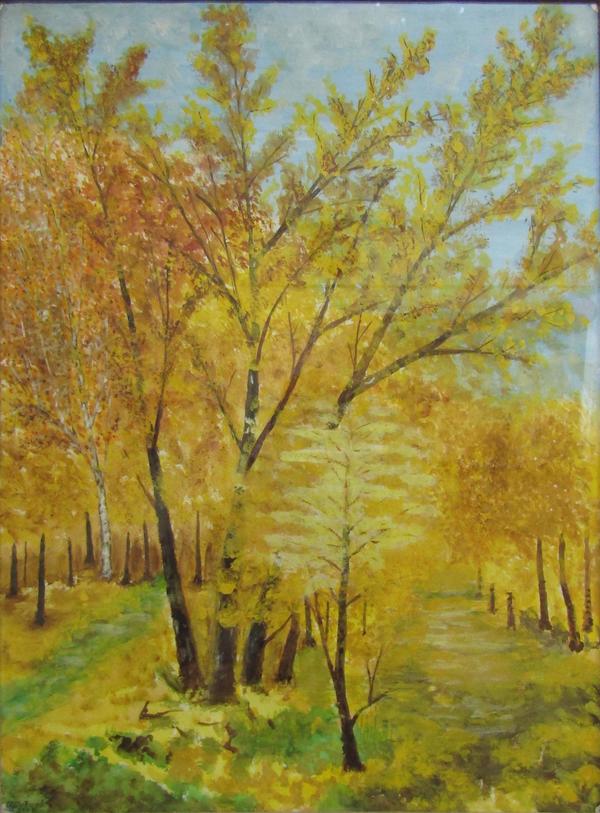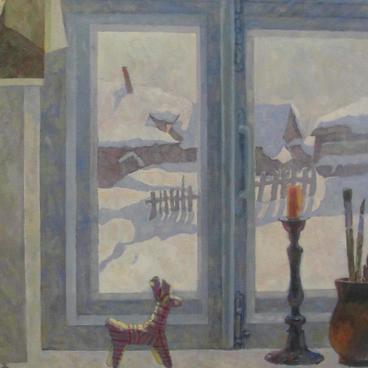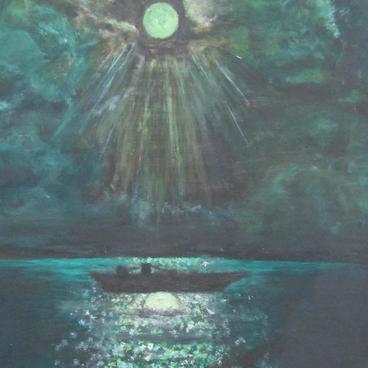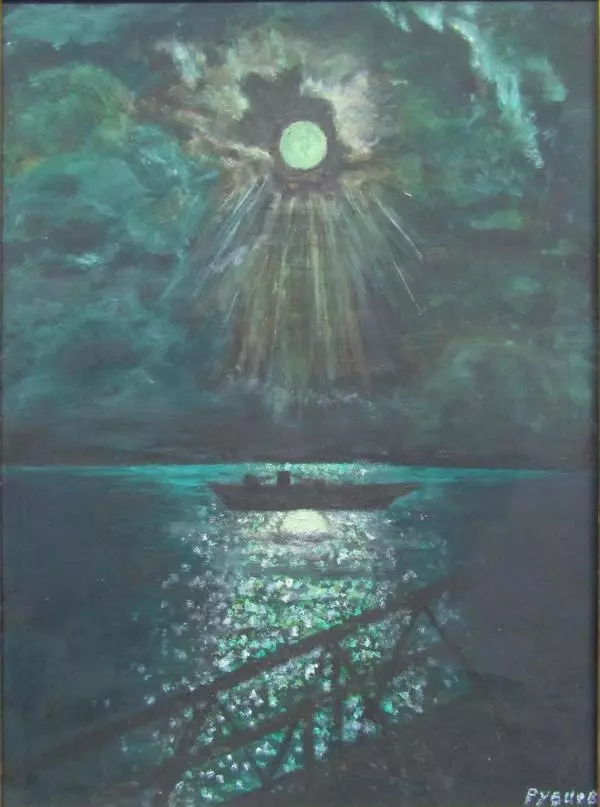The painter of Golden Autumn — Ivan Fedorovich Rubtsov — lived a long and hard life. He was born in 1923 in the village of Voeykovo that now has become one of the suburbs of Uzlovaya town. When the War started, he was an 18-year-old air-force cadet, and from 1943 he participated in active combat. In total, he flew almost 400 missions, engaged in 75 air combats and shot down 12 enemy aircraft. After the War, he stayed in the army. In 1973, he retired from service holding the rank of Colonel, and in 1998 by the resolution of the first President of Russia, Boris Yeltsin, he was awarded the title of the Hero of Russia.
In the years of his military service and after his retirement, Ivan Fedorovich was actively involved in painting. He had not been able to get any formal art education — first the War and then his military service in time of peace did not allow him to do it. But the love for art and talent of this self-taught landscape artist could not go unnoticed to the visitors of regional and district art exhibitions, in which Rubtsov actively participated after his retirement.
After the death of his wife, he started to spend more and more time painting, even though he had many talents: he played several musical instruments, composed music and poems, and even was accepted as a member of the Union of Writers of Russia. Ivan Rubtsov is known not only as a painter, but also as an author of several collections of poetry.
The painting Golden Autumn belongs to Ivan Rubtsov’s later artistic period — he painted it in 1998 when he lived in the town of Odintsovo of Moscow Region.
Moscow autumn, rich in colours, has been a source of inspiration for many poets and painters. In the Rubtsov’s painting, bright yellow is the dominant colour — hence the name. Between the gold covered birch trees and aspens, trails are visible. The trails are overgrown with grass that has not yet lost its green colour, however the fallen leaves cover it almost completely, which adds to this landscape both solemnity and autumn melancholy. The landscape depicted by the painter is lonely. Nature seems to be standing still: not a single person is seen is the picture, and even the wind will not ruffle the tree branches. Not a single leaf is falling — the park is still and silent.
In Autumn of 1998 Ivan Fedorovich had his anniversary — he turned 75 on the 7th of September. The major part of the life of the military retiree, poet and painter is behind him — hence when looking at the painting we cannot help feeling a slight sadness. However, this sadness is serene like the gentle rays of an already not so hot autumn Sun, and the high cloudless sky makes us think about the essential: about how fast a human life passes by, and about this world — changeable, but eternal and always wonderful, even in the autumn season, that poet Alexander Sergeevich Pushkin called lonesome.
In the years of his military service and after his retirement, Ivan Fedorovich was actively involved in painting. He had not been able to get any formal art education — first the War and then his military service in time of peace did not allow him to do it. But the love for art and talent of this self-taught landscape artist could not go unnoticed to the visitors of regional and district art exhibitions, in which Rubtsov actively participated after his retirement.
After the death of his wife, he started to spend more and more time painting, even though he had many talents: he played several musical instruments, composed music and poems, and even was accepted as a member of the Union of Writers of Russia. Ivan Rubtsov is known not only as a painter, but also as an author of several collections of poetry.
The painting Golden Autumn belongs to Ivan Rubtsov’s later artistic period — he painted it in 1998 when he lived in the town of Odintsovo of Moscow Region.
Moscow autumn, rich in colours, has been a source of inspiration for many poets and painters. In the Rubtsov’s painting, bright yellow is the dominant colour — hence the name. Between the gold covered birch trees and aspens, trails are visible. The trails are overgrown with grass that has not yet lost its green colour, however the fallen leaves cover it almost completely, which adds to this landscape both solemnity and autumn melancholy. The landscape depicted by the painter is lonely. Nature seems to be standing still: not a single person is seen is the picture, and even the wind will not ruffle the tree branches. Not a single leaf is falling — the park is still and silent.
In Autumn of 1998 Ivan Fedorovich had his anniversary — he turned 75 on the 7th of September. The major part of the life of the military retiree, poet and painter is behind him — hence when looking at the painting we cannot help feeling a slight sadness. However, this sadness is serene like the gentle rays of an already not so hot autumn Sun, and the high cloudless sky makes us think about the essential: about how fast a human life passes by, and about this world — changeable, but eternal and always wonderful, even in the autumn season, that poet Alexander Sergeevich Pushkin called lonesome.




